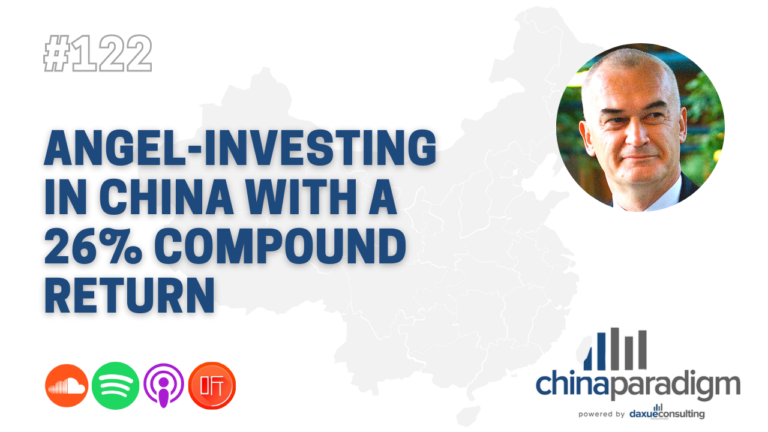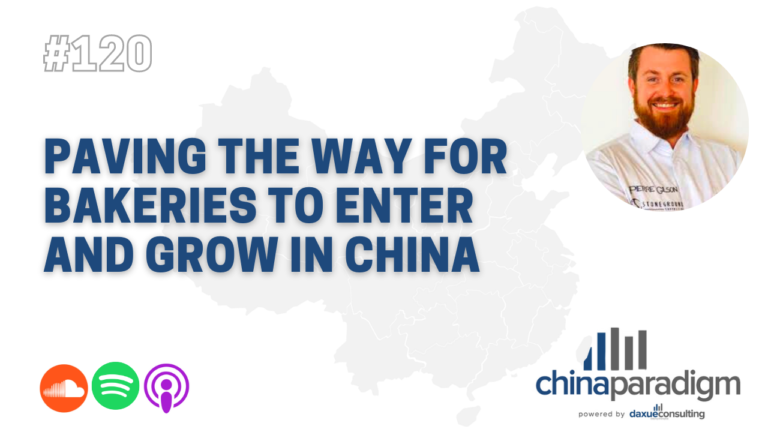China Paradigms interviewed Mike Hofmann, the managing director at Melchers, to better understand the factors of the retail business development in China, analyze the presence of foreign premium brands in China, and find out the cost of finding a value-added service provider in China.
Mike Hoffmann, specialized in retail business development in China
Mike Hoffmann has been in China for over twelve years. After he finished his master’s degree in history and economics at Technische Universität Darmstadt, he started his career journey in Beijing as a product and marketing manager at 31Best. Before becoming the managing director at Melchers, he worked as a general manager at AHK Greater China for seven years.

Mike Hoffmann has accumulated various knowledge and practices of retail business development in China through his long-time experience working with foreign premium brands in China. He has observed great changes in this industry and kept progressing in specific business segments. In 2016, Mike Hoffmann came back to school University of Maryland, where he applied for an MBA. This experience has definitely equipped him with more business acumen. Mike mentioned the books which inspire him most in an aspect of global business, ‘The Quest for Global Dominance’, written by his MBA professor. Mike is specialized in retail business development in China and has a strong motivation and professional skills in this specific business domain.
Melchers, the trusted partner for foreign premium brands in China
Melchers is a privately-owned company originally based in Germany which entered the Chinese market in 1866. It is a long-established company with over 150 years in China. The group is highly diversified and active in a broad range of sectors such as machinery and industrial, software, luxury. The main activities are sales, marketing, distribution, and after-sales service. Foreign premium brand in China is one type of the companies Melchers cooperates with. Apart from this, it also serves a wide range of sectors such as software, industrial, and manufacturing fields.

“What we did is that we were running the entire retail operation for foreign premium brands in China. When I say running, it is we used to buy the products; we opened the stores, we managed the store in a close corporation.”
To summarize, Melchers offers the package of retail operation services that every foreign premium brand will need in the Chinese market. As Mike Hoffmann explained it, the local retail market is extremely complicated, and foreign premium brands in China, especially those small companies, will face high risk in the investment market. This explains why they need a trusted partner like Melchers for retail business development in China.
Value-added service provider in China, customer-centric solution for premium brands
“In the past, we were the exclusive agent for China, we did everything. Nowadays it’s becoming the different areas more specialized.”
According to Mike Hofmann, Melchers is particularly good at providing a customer-centric solution for foreign premium brands in China. One aspect of the retail operation is to find suitable salespeople in retail stores. This is particularly accurate in the luxury watch industry: being the value-added service provider in China, Melchers not just ensures sales amount but also helps to build exceptional customer service to achieve a sustainable business model.
The first step is to recruit salespeople, but recruiting salespeople from other watch brands is not always a good idea as they will already have existing knowledge of other similar brands and could be too aggressive in sales. Mike’s strategy is to recruit employees from the hospitality or airline industry who will have more relational skills to communicate with customers. It is especially essential for luxury brands where service is more important than sales.
Secondly, as nowadays watches are equipped with high tech, it is necessary for salespeople to have the right training and be able to answer every question properly and professionally.
Those services may sound trivial for some foreign companies when they first come into the Chinese market, but they will soon understand the necessity to find a value-added service provider in China as soon as they will face plenty of problems because of their lack of knowledge about the Chinese market.
Rents in the Chinese marketplace, online and offline
When a retail brand first lands in the Chinese market, it will need stores to present products, whether it is online or offline. Rents in the Chinese marketplace sometimes take 20% of sales or are based on a fixed fee. In both cases, they are quite high, even for foreign companies from New York, London, or other influential cities. However, when a shopping mall is newly built and invites you as a brand representative in the mall, it will be possible to leverage this and negotiate about rents in the Chinese marketplace.
Whether to choose online or offline marketplace and whether to find a partner in store ownership, referring to Mike, all depends on “the category of the business & also how the brand is willing to invest in China.”
Online rents in the Chinese marketplace are not cheaper than bricks and mortar stores. Take Tmall as an instance where rents may be as high as it is in offline malls. Some Tmall partners for foreign premium brands in China will help them maintain the stores in exchange for a certain fee. Of course, foreign brands can arrange a store by themselves, but they need to take the cost into account.
“The alternative cost of doing it myself, you have to build up the infrastructure, you have to deal with the customer returns, you have to deal with the payments, reimbursement, broken warranty cases and so on.”
Rents in the Chinese marketplace are never cheap, no matter if it is online or offline, but there are still more and more emerging foreign premium brands in China aiming to explore the massive and fast-changing retail market in China.
Listen to this episode here:










